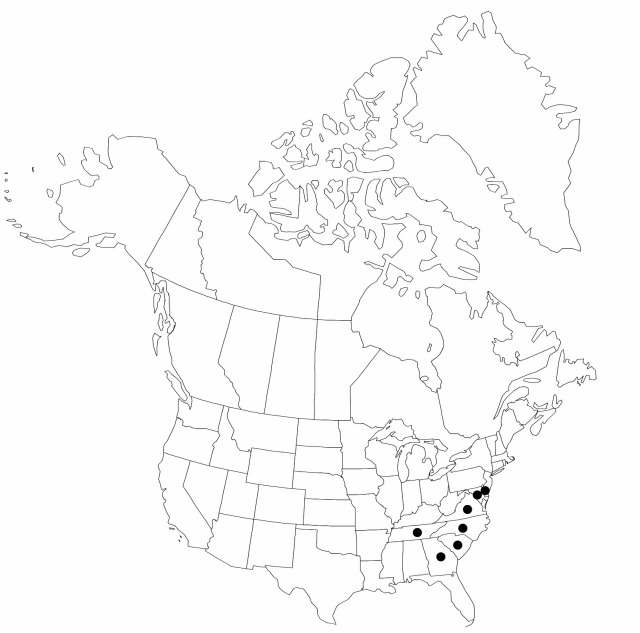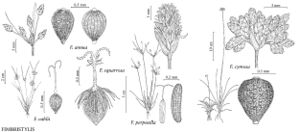Fimbristylis perpusilla
in J. K. Small, Fl. S.E. U.S., 188, 1327. 1903.
Plants annual, delicate, cespitose, slender, 2–15 cm; rhizomes absent. Leaves polystichous, spreading to ascending, mostly excurved, exceeding or exceeded by culms; sheaths entire, backs glabrous; ligule absent; blades setaceous-filiform, to 0.5 mm wide, flat to involute, sparsely scabridciliate. Inflorescences: anthelae mostly simple, open, nearly as broad as long, ascending-branching, umbelliform, of 3–10 cormose spikelets; scapes filiform, 0.5–0.6 mm thick; proximalmost involucral-bracts setaceous-bladed, exceeding anthela. Spikelets pale green to light-brown, ovoid to globose or short-cylindric, 2–5 mm; fertile scales lance-linear to oblong-linear, 1.5 mm, glabrous, midrib strongly excurrent, erect to excurved cusp. Flowers: stamens 1; styles 2-fid, slender, glabrous. Achenes pale-brown with iridescent tints, curved-cylindric, 0.4–0.6 mm, finely reticulate, in 12 vertical rows of narrowly rectangular, horizontal cells. 2n = 10.
Phenology: Fruiting summer–fall.
Habitat: Fluctuating sandy-silty shores of shallow ponds, pine savanna pools, reservoirs, ditches, and canals
Elevation: 0–100(–200) m
Distribution

Del., Ga., Md., N.C., S.C., Tenn., Va.
Discussion
Of conservation concern.
The nearest relative of this ephemeral is Fimbristylis dipsacea, a similarly diminutive Eurasian and South American annual with broader, more spreadingcusped spikelets and oddly compound-papillate fruit.
Selected References
None.
Lower Taxa
"shortened" is not a number.
